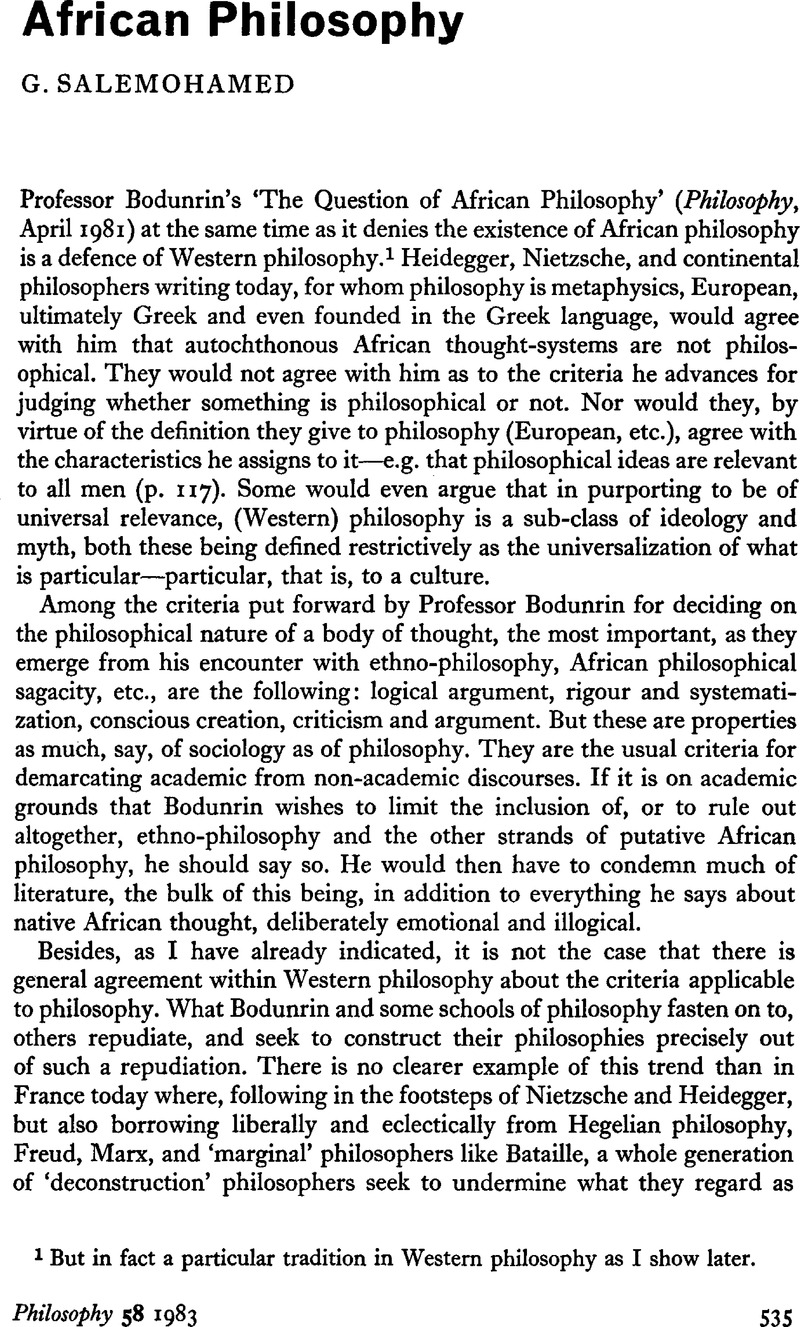Article contents
African Philosophy
Published online by Cambridge University Press: 30 January 2009
Abstract

- Type
- Discussion
- Information
- Copyright
- Copyright © The Royal Institute of Philosophy 1983
References
1 But in fact a particular tradition in Western philosophy as I show later.
2 The names here are legion: Foucault, Derrida, Deleuze, Lyotard, etc.
3 C. Lévi-Strauss, The Savage Mind (London: Weidenfeld and Nicholson, 1966), Ch. 9.
4 For Husserl, philosophy begins with the de jure/de facto (the a priori and the empirical) opposition; V. Dêscombes, Le Mime et L'Autre (Paris: Minuit, 1979), 165.
5 Understanding in the sense in which Gadamer uses it: as a ‘fusion of horizons’, an openness to the other which does not require ‘theoretical objectifications’; H. G. Gadamer, Philosophical Hermeunetics (Berkeley: University of California Press, 1977,) xxii–xxvi.
6 ‘Husserl's question … is the question of the origin of the world. It is, no doubt, the question involved in myths, religions, theologies, and ontologies, where it is not yet scientifically elaborated’; P. Ricoeur, Husserl: An Analysis of His Phenomenology (North Western University Press, 1967), 25.
7 M. Foucault, Histoire de la Folie á l' Age Classique (Paris: Plon, 1961), much of which is concerned with the institutional preconditions of Cartesian rationalism.
- 2
- Cited by


